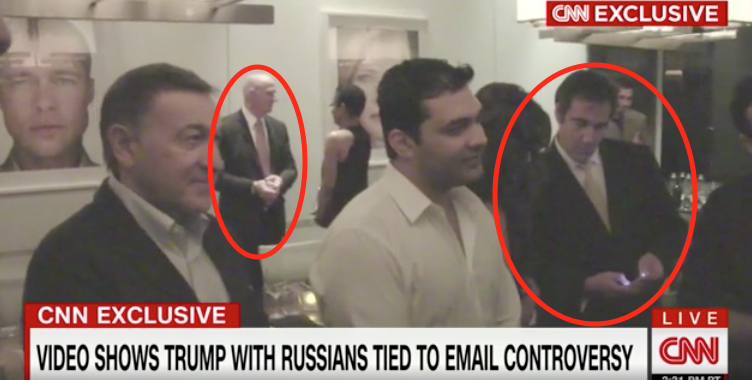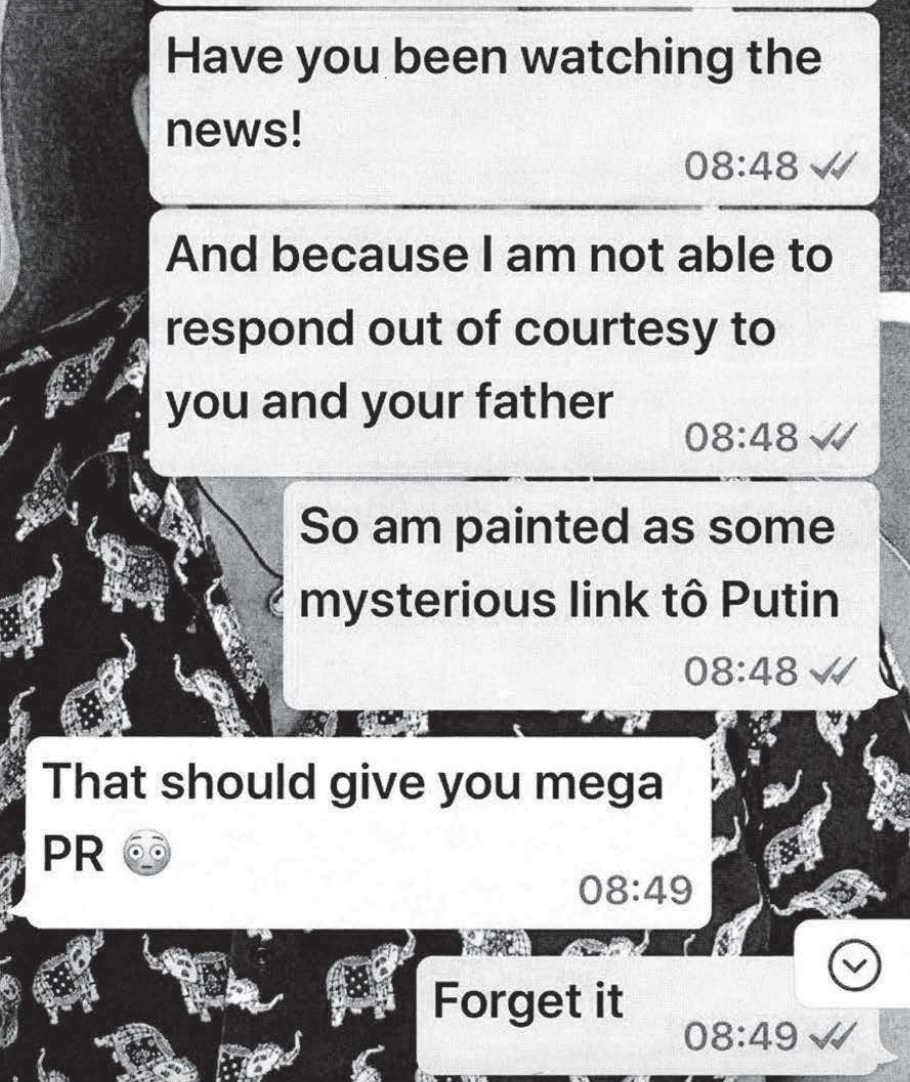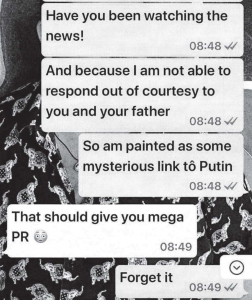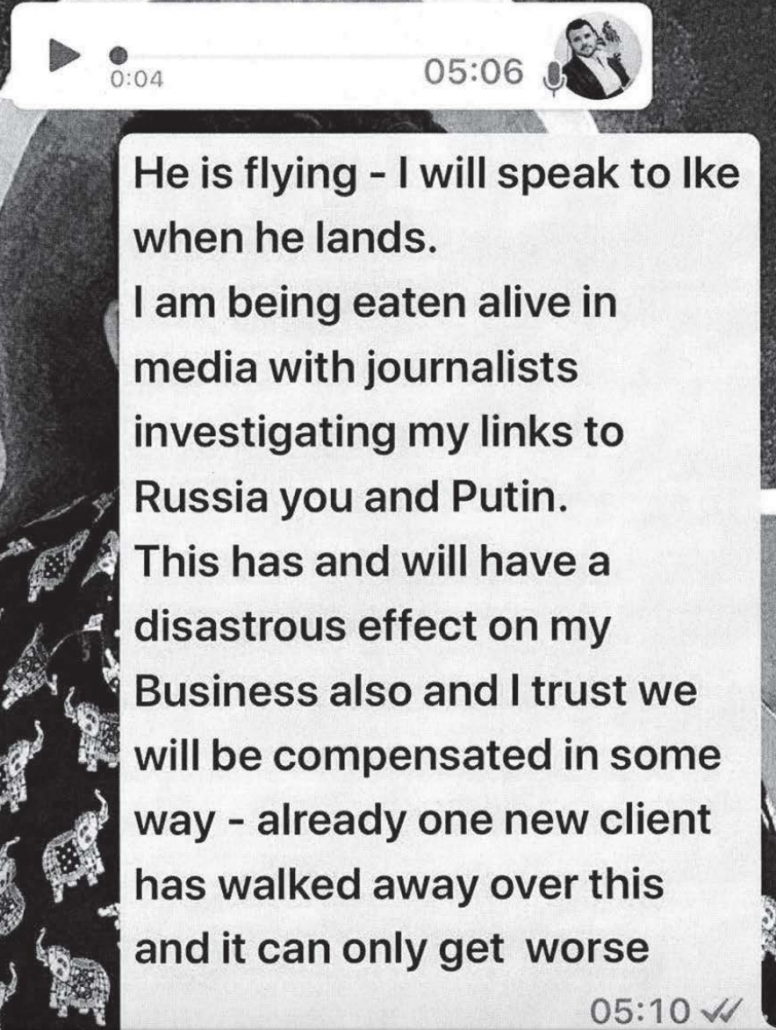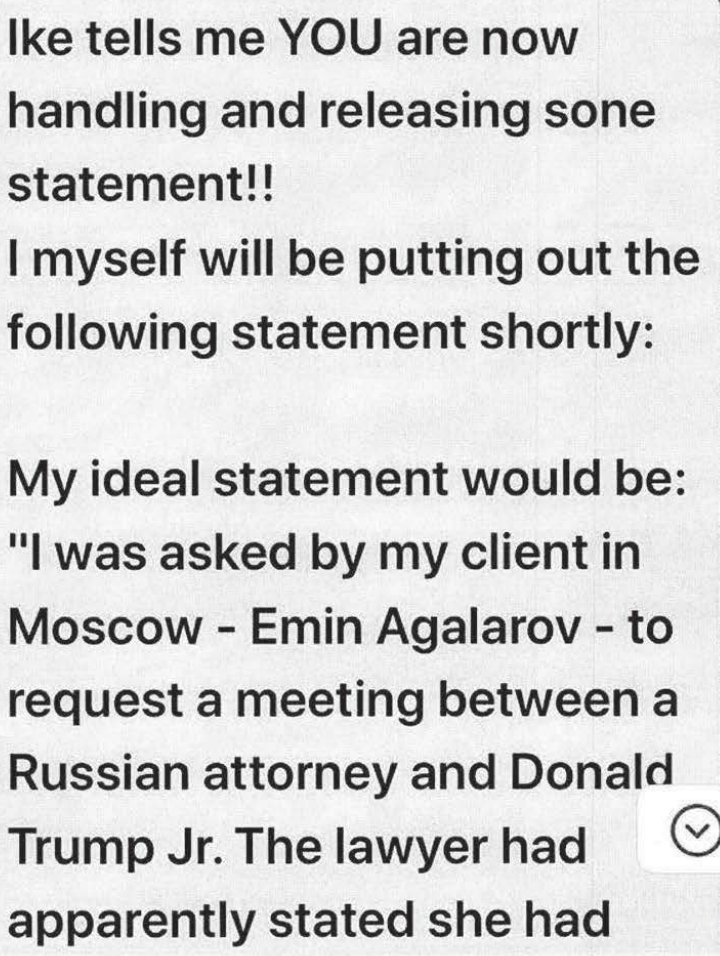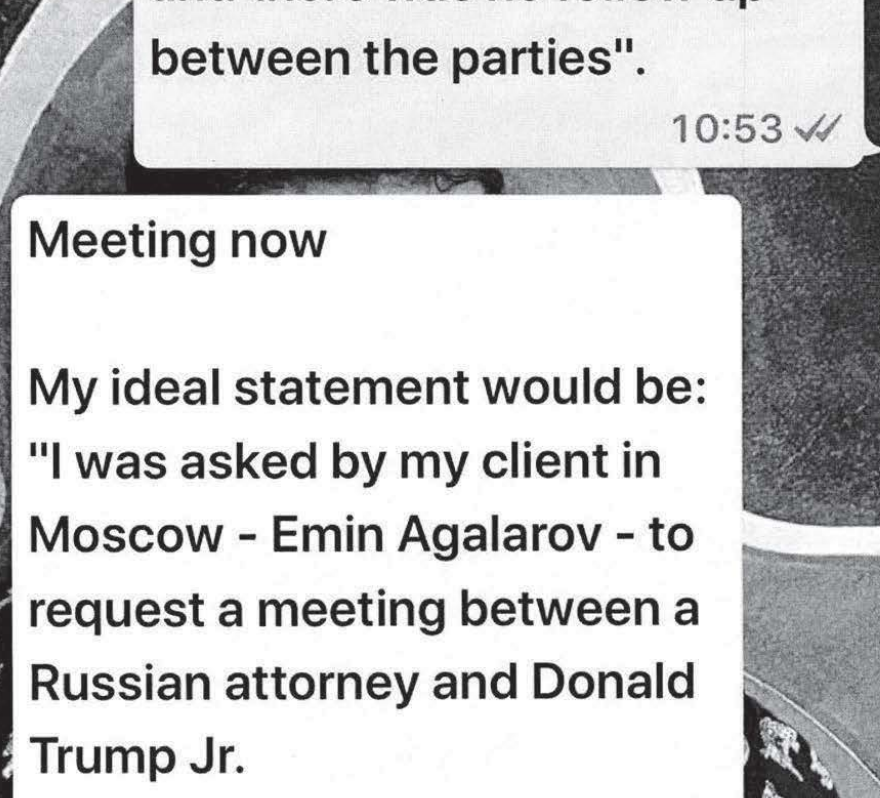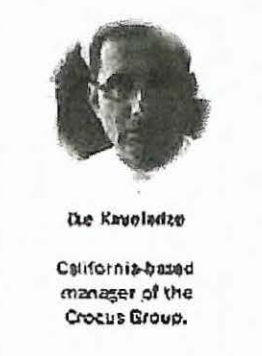Some Important Historical Details Michael Cohen Probably Shared with Mueller’s Team
The attention since Michael Cohen pled guilty has focused largely on his role in brokering a Trump Tower deal, which was the substance of his lies to Congress as detail in his plea. But there are other things about which he was surely a really useful witness for Mueller. ABC provided some sketchy details, including the enticing detail that Cohen knew about pardon offers (possibly, even for him).
Cohen has spent more than 70 hours in interviews with Mueller’s team. The questioning has focused on contacts with Russians by Trump associates during the campaign, Trump’s business ties to Russia, obstruction of justice and talk of possible pardons, sources familiar with the discussions have told ABC News.
But I want to point to two historical details of particular interest.
It’s clear that Mueller has some interest in campaign finance irregularities, at least those of Roger Stone. But the crowd Roger rat-fucks with actually has a history with Michael Cohen. Cohen set up a 527 in 2011 into which Trump Organization funneled probably illegal cash.
As I’ve noted, in 2011, one of the people closely involved in Stone’s 2016 rat-fucking, Pamela Jensen, was involved in a 527 called ShouldTrumpRun that listed Michael Cohen as President.
The organization was apparently laundering Trump corporate cash into campaign spending. But when the issue came before the FEC, Commissioner Don McGahn helped kill an investigation into it.
During McGahn’s FEC tenure, one of those he helped save from enforcement action was Trump himself. In 2011, when the future president-elect was engaged in a high-profile process of considering whether to enter the 2012 race for the Republican presidential nomination, Trump was formally accused in an FEC complaint of violating agency regulations. The case was dismissed on a deadlocked vote of the FEC commissioners.
A four-page complaint filed by Shawn Thompson of Tampa, Fla., accused Trump of illegally funneling corporate money from his Trump Organization into an organization called ShouldTrumpRun.com. McGahn and fellow FEC Republicans Caroline Hunter and Matthew Petersen voted to block FEC staff recommendations that Trump be investigated in the matter—designated Matter Under Review (MUR) 6462.
Ultimately, Trump opted not to run for president in 2012. Nonetheless, FEC staff attorneys concluded his activities before that decision may have violated campaign finance rules regarding money raised to “test the waters” for a candidacy. A staff report from the FEC Office of General Counsel, based largely on news articles and other documents about Trump’s flirtation with running for president—including Trump’s own quoted statements— recommended that the commissioners authorize a full FEC investigation backed by subpoena power.
FEC Democrats voted to pursue the recommended probe, but the votes of McGahn and the other FEC Republicans precluded the required four-vote majority needed for the commission to act.
McGahn and Hunter issued a “ statement of reasons” explaining their votes in the Trump matter in 2013. The 11-page statement blasted FEC staff attorneys in the Office of General Counsel for reviewing volumes of published information regarding Trump’s potential 2012 candidacy in order to determine whether to recommend that the FEC commissioners vote to authorize a full investigation. McGahn and Hunter argued that the FEC counsel’s office was prohibited from examining information other than what was contained in the formal complaint submitted in the case.
The Office of General Counsel shouldn’t be allowed to pursue an “unwritten, standardless process whereby OGC can review whatever articles and other documents not contained in the complaint that they wish, and send whatever they wish to the respondent for comment,” the Republican commissioners wrote.
And this public trial balloon in 2011 is interesting for another reason. It means that when Trump set up the Miss American deal in 2013, the Russians knew he might consider running for President. Cohen was closely involved in that deal, too.
That Cohen was involved in negotiations with the Agalarovs in 2013 is interesting enough. But I’m particularly intrigued by something that happened in the wake of the disclosure of the June 9 meeting. As the Trumps and Agalarovs started getting testy about each others’ response, Ike Kaveladze called Roman Beniaminov’s attention to a picture from the Las Vegas announcement party that got leaked to the press, highlighting Cohen and Keith Schiller.
On July 13, 2017, Ike Kaveladze (who was really in charge of the meeting for his boss, Aras Agalarov) and Roman Beniaminov (Emin Agalrov’s assistant, who heard ahead of time the meeting was about dealing dirt on Hillary to the Trumps) had the following exchange by text (PDF 34).
[Kaveladze sends link]
Beniaminov: But I don’t recall taking any video. And I can’t understand why it looks so similar.
Kaveladze: I mean his trump organization employees.
By July 13, the Agalarovs and Trumps were increasingly at odds on how to respond to the story, not least after the Trumps leaked Rod Goldstone’s name to the press after saying they wouldn’t. After that, there seemed to be increasing amounts of dirt being leaked, perhaps by both sides.
It appears that Kaveladze may have phoned Beniaminov right before this to raise this CNN story, which had just been posted. Beniaminov seemed to think Kaveladze had suggested that he, Beniaminov, had taken the video, even while he seems to have been present at the Las Vegas event back in 2013.
Scott Balber, the Agalarov’s ever-present lawyer (who had actually represented Trump on a Miss Universe related issue in 2013), was quoted in the piece.
“It’s simply fiction that this was some effort to create a conduit for information from the Russian federal prosecutors to the Trump campaign,” Balber said on CNN’s “New Day.” “It’s just fantasy world because the reality is if there was something important that Mr. Agalarov wanted to communicate to the Trump campaign, I suspect he could have called Mr. Trump directly as opposed to having his son’s pop music publicist be the intermediary.”
I don’t rule out Balber having taken and leaked the video.
Or maybe not: What Kaveladze is interested in highlighting to Beniaminov is the presence of two other Trump employees in the video: Keith Schiller and Michael Cohen, shown above.
I don’t know what to make of the reference — though it’s equally possible they were involved in the 2017 response, or were viewed for some other reason as an additional concern regarding the June 9 meeting.
While Schiller actually was in the loop of the June 9 meeting (Rob Goldstone chatted with him the day of the meeting and asked about how to mail things to Trump given increased security), there’s no public evidence Cohen was.
But perhaps Kaveladze realized Cohen might know something about the 2013 events that would be of concern as the investigated heated up.
In any case, we know from Mueller’s questions he thinks the 2013 does serve as a key part of the investigation. And while Schiller — with his sinecure at the RNC — may not be talking, Michael Cohen is.
There are other aspects of Trump’s business that Cohen will explain for Mueller, including corrupt deals with Russians and related countries.
But these two past events are likely to be of particular interest for Mueller’s prosecutors.

